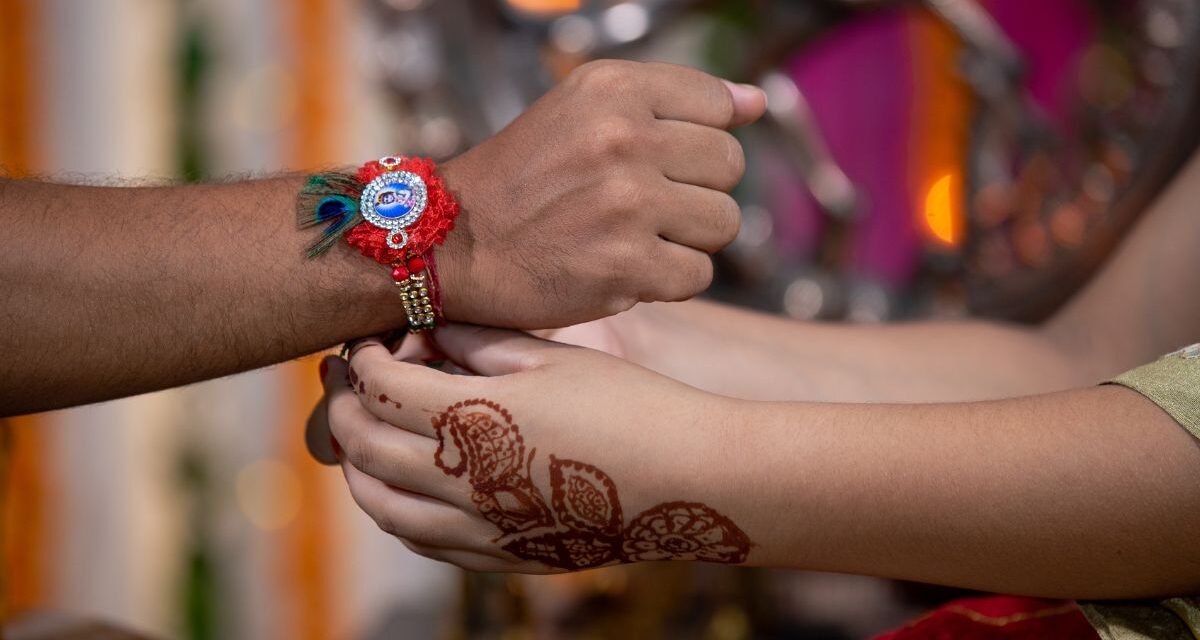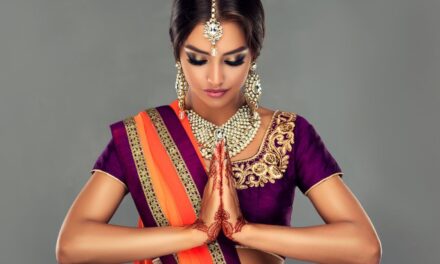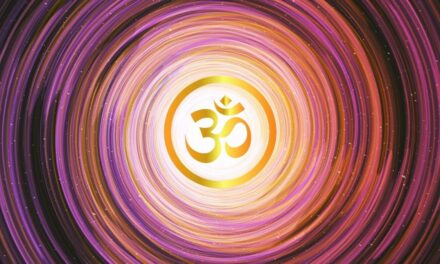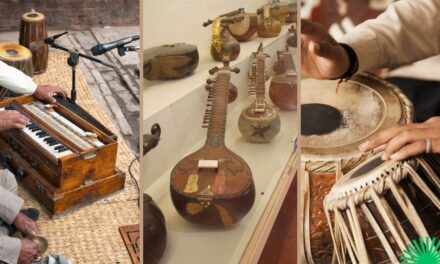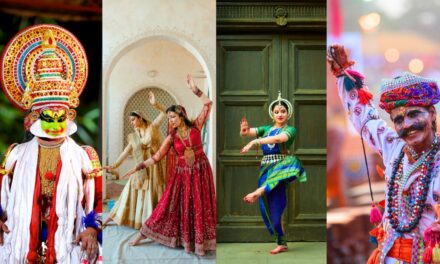Raksha Bandhan, also known as Rakhi, is a truly heart-warming Hindu festival celebrating the deep bond between a sister and her brother.
It is a day when sisters and brothers acknowledge their unbreakable love for each other. Traditionally, it is also a day when brothers vow to protect their sisters from any kind of adversaries or situations.
On the day of Raksha Bandhan, sisters tie a ‘Rakhi’ around the wrists of her brother. It is tied around the wrist of either the left or right hand.
A Rakhi, is a colourful thread that is considered sacred. Over the years, Rakhis have become quite elaborate and have intricate designs on them. You can find Rakhis of various thickness, designs, colours and symbols on them.
For little children, Rakhis can also have their favourite cartoon characters or anything that is attractive to them.
Most families follow a simple and brief ritual when the Rakhi is tied. Traditionally, brothers give gifts to their sisters in exchange of the Rakhi. With the Rakhi tied, the brother reaffirms their love for the sister and makes a promise to protect her no matter the circumstances.
It is a beautiful ceremony that is filled with love, joy, laughter and fun between the siblings.
Raksha Bandhan involves not just real sisters and brothers but cousins as well. In Today’s India, it also involves someone who is like your brother or sister such as a childhood friend, neighbour, family friend or in certain cases even teachers.
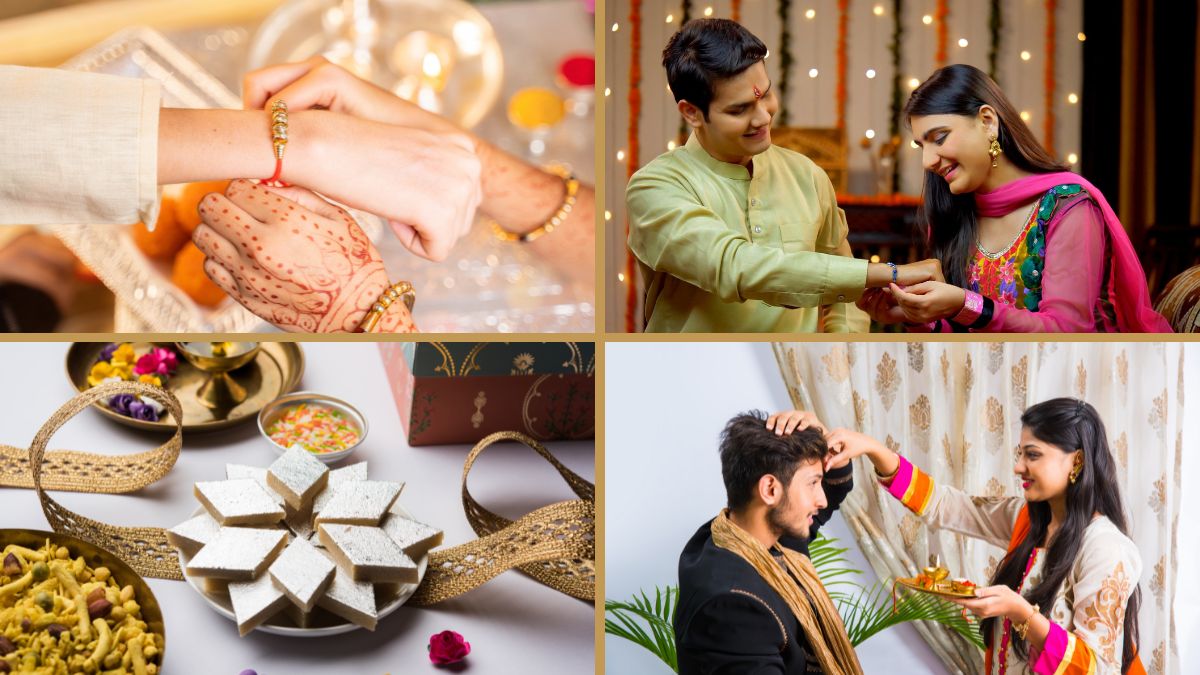
What does Raksha Bandhan mean?
Raksha means protection and Bandhan means bond. Together, Raksha Bandhan means the ‘bond of protection’ or a ‘protective bond’.
When is Raksha Bandhan Celebrated?
Raksha Bandhan is typically celebrated in the month of August each year.
However, the exact date depends upon the Hindu calendar month of Shraavana. On the full moon day of Shraavana, Raksha Bandhan is celebrated each year.
Full moon day is also known as Purnima in Sanskrit.
History, Origins and Legends of Raksha Bandhan
Raksha Bandhan has been celebrated in India since the ancient times. There are mentions of ‘Rakhi’ in various books and scriptures throughout Indian history.
There are talks of Indian Queens using Raksha Bandhan as a means to stop war and turning invading enemies into allies. There is also mention of using Raksha Bandhan as a bridge between communities and build togetherness as well as harmony during the Indian Independence struggle.
Just like any other Indian Hindu festival, there are a number of legends associated with Raksha Bandhan. The most popular of them all involves Lord Krishna and Draupadi from the holy text of Mahabharata.
It is said, that Lord Krisha cut his finger and started bleeding. On seeing this, Draupadi rushed to his side tearing a piece of her saree and tied it around Lord Krishna’s finger to stop the bleeding.
Lord Krishna deemed the cloth that Draupadi used to stop his bleeding as sacred. He used to consider Draupadi as his sister and promised to protect her against all evil which he did several times during the events depicted in Mahabharata.
Since then, tying sacred threads between sisters and brothers became a norm to solidify the deep bond between them. It also reflected the natural impulse of a brother to protect his sister from all things evil.
Social Impact of Raksha Bandhan on Indian Society
The positive and heartening nature of Raksha Bandhan has made a deep impact on Indian society.
Firstly, it has brought families closer to each other. Even if someone is not part of the traditional joint family system and lives as a nuclear family, Raksha Bandhan is a day that people get in touch with all family members and pay their respects.
Second, there has been an extended benefit to the Indian community as Rakhis are tied to not just immediate or extended family members, but to people considered close to you or ‘like a brother’.
In many cases, this includes people from other religions as well who are ready to participate in the festivities and overall endorse the meaning behind Raksha Bandhan.
Third, Raksha Bandhan has slowly become a way to bring awareness of women’s rights and gender equality. Since the main premise of Raksha Bandhan is a brother vowing to protect his sister against all evils, it has become symbolic for protecting against social evils as well.
Final thoughts
Raksha Bandhan is a beautiful, heart-warming Indian festival rooted in Hindu culture. It is the biggest celebration of the relationship, deep bond and love between a sister and her brother.
It has also become a bridge between communities, have brought families closer to each other and promoted harmony in Indian society.

